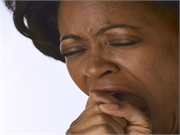- Could Your Grocery Store Meat Be Causing Recurring UTIs?
- Are You Making This Expensive Thermostat Error This Winter?
- Recognizing the Signs of Hypothyroidism
- 10 Strategies to Overcome Insomnia
- Could Artificial Sweeteners Be Aging the Brain Faster?
- Techniques for Soothing Your Nervous System
- Does the Water in Your House Smell Funny? Here’s Why
- Can a Daily Dose of Apple Cider Vinegar Actually Aid Weight Loss?
- 6 Health Beverages That Can Actually Spike Your Blood Sugar
- Treatment Options for Social Anxiety Disorder
Get Ready for the Sleepiest Day of the Year

What’s the sleepiest day of the year?
For a majority of Americans, that would be New Year’s Day, according to a survey of 2,003 adults by the American Academy of Sleep Medicine (AASM).
The findings showed that 57 percent said they’re more tired on Jan. 1 than on other holidays and times of the year, followed by the first day back at work in January (45%) and July 5 (41%).
As well as being the sleepiest day, New Year’s Day is a good time to set healthy sleep goals for the coming year, the sleep experts said. Sleep improves well-being, fitness and productivity, and helps fight off infection, maintain a healthy weight and prevent chronic diseases.
Resolve to get enough sleep each night, AASM advises. Adults should sleep seven or more hours a night on a regular basis, but more than one-third of U.S. adults fall short of that, according to data from the U.S. Centers for Disease Control and Prevention.
The quality of your sleep is also important. Keep your bedroom free of distracting technology, or be sure to silence or turn off your cellphone and TV. Ideally, turn off devices at least 30 minutes before bedtime.
Avoid alcohol, caffeine or tobacco in the evening, and don’t eat a large meal or exercise right before bed. Make a comfortable setting for sleep by keeping your bedroom dark and at a temperature that’s good for sleeping. Most people sleep best at a cool temperature, according to the AASM.
Maintain a regular sleep routine, they advised in an academy news release. Try to wake up at the same time every morning and go to bed when you feel sleepy.
If lifestyle changes don’t improve your sleep, talk to your health care provider about possible solutions.
If you have an ongoing sleep problem or struggle to stay awake during the day, the AASM recommends that you seek help. Common sleep disorders like insomnia and sleep apnea are treatable.
More information
The U.S. National Institutes of Health offers a guide to healthy sleep.
Source: HealthDay
Copyright © 2026 HealthDay. All rights reserved.










